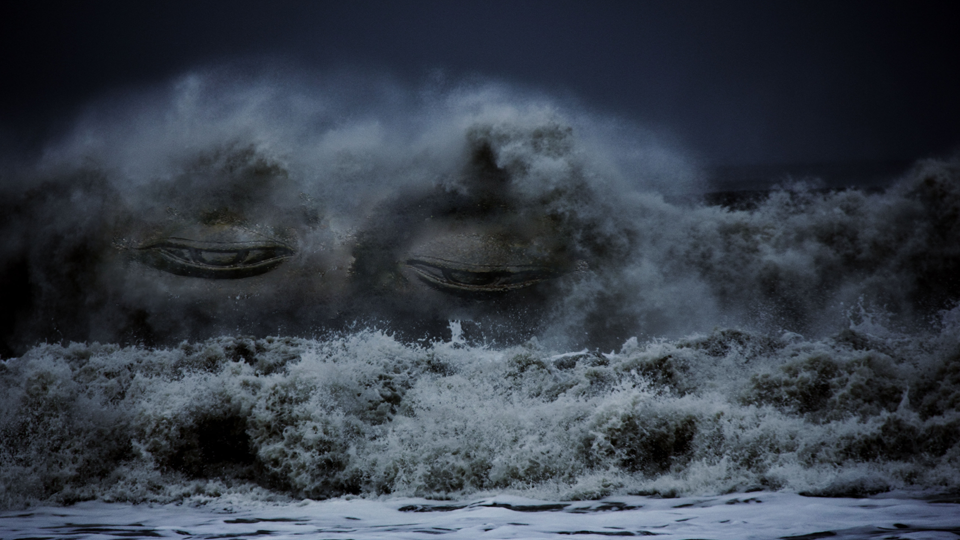Four Things the Story of Jonah Can Help Us See About Our Man-Caused Disasters
Jonah chapter 1 says: 7 And they said to one another, “Come, let us cast lots, that we may know on whose account this evil has come upon us.” So they cast lots, and the lot fell on Jonah. 8 Then they said to him, “Tell us on whose account this evil has come upon us. What is your occupation? And where do you come from? What is your country? And of what people are you?” 9 And he said to them, “I am a Hebrew, and I fear the Lord, the God of Heaven, who made the sea and the dry land.” 10 Then the men were exceedingly afraid and said to him, “What is this that you have done!” For the men knew that he was fleeing from the presence of the Lord, because he had told them.
11 Then they said to him, “What shall we do to you, that the sea may quiet down for us?” For the sea grew more and more tempestuous. 12 He said to them, “Pick me up and hurl me into the sea; then the sea will quiet down for you, for I know it is because of me that this great tempest has come upon you.” 13 Nevertheless, the men rowed hard to get back to dry land, but they could not, for the sea grew more and more tempestuous against them. 14 Therefore they called out to the Lord, “O Lord, let us not perish for this man’s life, and lay not on us innocent blood, for you, O Lord, have done as it pleased you.” 15 So they picked up Jonah and hurled him into the sea, and the sea ceased from its raging. 16 Then the men feared the Lord exceedingly, and they offered a sacrifice to the Lord and made vows.
Not many people are willing to sacrifice themselves as a consequence of their actions; Jonah was.
Not many people are willing to accept rebuke as a consequence of their actions; Jonah was.
God called Jonah to a specific action; Jonah balked at it.
Jonah could not deny that the Lord was angry at him for his disobedience and that the storm that afflicted the ship he was on was a result of his sin. The men cast lots to see whose fault this storm was, and the lot fell on Jonah. It wasn’t so much a sign to the unbelievers on the ship, but to Jonah, that God was calling him out. And Jonah then makes the decision to become one with Davy Jones’ Locker, so as to save those on board.
Here are four things I believe Jonah’s plight can teach us about how God can call us to an acknowledgment of our disobedience:
(1) Acknowledge That the Lord is Speaking to You
When the lot fell to him, Jonah knew that the Lord was speaking directly to him. The distress he was inflicting on those other people, the realization that he needed to fix the situation caused by his actions, and the acceptance of his impending death sentence at the hand of the sea must have brought the reality of how much God wanted Jonah’s attention.
When Jonah says: “I am a Hebrew, and I fear the Lord, the God of Heaven, who made the sea and the dry land,” I believe it is more than a statement of identity, but a coming to terms with God’s authority and calling. His statement of identity is also self-realization, that, as a member of God’s chosen people, he is called to obey. God has become a real presence, who is not afraid to interact with His creation, to teach, disciple, and sometimes rebuke.
God speaks many spiritual languages to us, such as discipline, removal, or peace, but we must remember that those languages are united in His love for us.
(2) Acknowledge Who You Are
Jonah was more than a Hebrew, he was a prophet. When he says, “I fear the Lord,” I question his intentions. As he is recording this, is he just stating that he said it out of what he thought was a necessary statement (“I am a prophet, I should say this)? Was it part of a standard answer that the Israelite people gave when a foreigner asked them of their nationality and god-allegiance? Was he saying, “Ok, I know God is God, but now I REALLY fear God because I see His work. Or, was it truly a statement of faith that transcended circumstances?
We need to start acknowledging that being a Christian means more than a low, baseline standard. If you’re a prophet, behave like a prophet; if you’re a father, behave like a father; if you’re a police officer, behave like a police officer. Generic statements of faith are just generic if we don’t hold to the integrity of being serious about our confession. We are Christians, and that should be something we’re not afraid to let people know.
(3) Acknowledge That Other People Might Be Involved
Jonah says: “I know it is because of me that this great tempest has come upon you.” He acknowledges that his actions have spread beyond himself and are affecting innocent people.
We must be willing to stop the madness when our sins pull other people into our brokenness.
(4) Make the Difficult Decision to Accept the Consequences of Your Actions
I can’t imagine the people aboard that ship wanted to throw anyone overboard, especially a prophet of the god they believed was responsible for the storm they were in. That is probably one of the chief reasons they tried to row even harder to get back to land. Who wants that on their conscience? But the storm getting worse solidified for Jonah that this needed to be done. Their prayer reflected that they did not want to throw Jonah overboard, but if they did, that God would not hold it against them. I imagine that Jonah gave them some words of closure, so that they would be assured no vengeance or retribution would fall on their heads.
The consequences God calls us to face may never be this extreme, but, especially when other people are affected by our deviations, we may be called to sacrifice our reputation, our job, or personal and physical things that mean much to us. But we must remember that God never rebukes apart from what glorifies His name and points us in the direction of the grace of the cross.
What if we disciplined ourselves for those times in which we know we’ve failed? What if, when we let our anger hurt someone else in one of our adult tantrums, we not only apologize but also take away our TV rights for a couple of days? What if we called ourselves to sacrifice? We instill it in our kids to teach them, but why not try it on ourselves? Just because we’re adults doesn’t mean we shouldn’t keep growing in all things. If we believe that discipline helps us grow, maybe we should be willing to self-impose some restrictions instead of waiting and hoping it never happens to us from God. Would that help us learn?
Jonah disobeyed. Jonah sinned. Jonah took a bold step. Let us follow his example when we let our tempests rage. Amen.




Once again, I have to say how much we look forward to the “hump day” newsletter. The Video’s are inspiring and the Pastors translation on the Bible verse helps us apply his thoughts to our daily lives.
We appreciate all the hard work of everyone involved.
Blessings,
Chris & Debbie